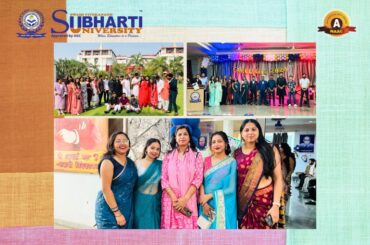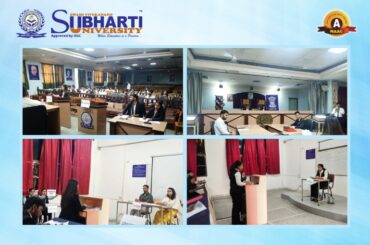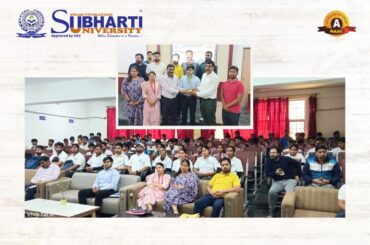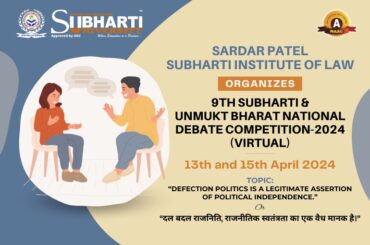Lecture on:
The Making of the Constitution of India
Dr. Ambedakr Chair organizes Monthly Lecture Series on
“The Making of the Constitution of India: Exploring the Role of Dr. B.R. Ambedkar” Fifth Lecture organizes
On
“Importance of Fundamental Rights, Directive Principles of State Policy and Fundamental Duties of the Constitution of India”
As part of Monthly Lecture Series on “The Making of the Constitution of India: Exploring the Role of Dr. B.R. Ambedkar” the 5th Lecture on “Importance of Fundamental Rights, Directive Principles of State Policy and Fundamental Duties of Constitution of India” was organized in Rani Laxmibai Auditorium, Subharti Medical College on 27.01.2024 (Saturday) at 11.00 AM onwards. The Lecture was delivered by Dr. Sarika Tyagi Associate Professor, Faculty of Law. The Students of Subharti Medical College & Departments of Naturopathy and Yogic Sciences took part with great zeal and interest. Dr. Sarika Tyagi has delivered a very motivating lecture regarding this. During this session, the Participants were introduced about the importance of Fundamental Rights, Directive Principles of State Policy and Fundamental Duties of Citizens of India. During the Lecture, she told that for the proper working of the country’s democratic system, the Constitution of India has provided specific provisions to the citizens and state. The Fundamental Rights are provided in Part III of the Constitution as the essential tool for safeguarding the rights and lives of the citizens. Part IV of the Constitution gives the Directive Principles of State policies. Provisions in this part provide the state with the directions to form policies and laws. Finally, Part IVA of the Constitution provides Fundamental Duties for the people of India. These duties serve as a reminder for the people of their responsibilities towards the country. See also said that the Constitution of India is the Supreme law of land. She also said that any law made by Parliament which is against the spirit and provisions of Fundamental Rights will be void. Therefore, the Constitution of India is Supreme. Fundamental rights are given in Part III of the Indian Constitution are essential features of the Indian Constitution. These rights are necessary for the peaceful and dignified existence for people of India. The Indian Constitution that deals with the people’s fundamental rights are often described as the Magna Carta of the Indian Constitution.
Fundamental rights are called fundamental because the Constitution guarantees them as its fundamental laws. The state cannot take away these rights from any individual. There can be certain limitations to these rights. The Constitution of the United States inspires the Fundamental Rights in the Indian Constitution.
Regarding the Role of Dr. B.R. Ambedkar in the making of the Constitution of India, She also played a video in the Conference Hall for developing better understanding of the participants.







